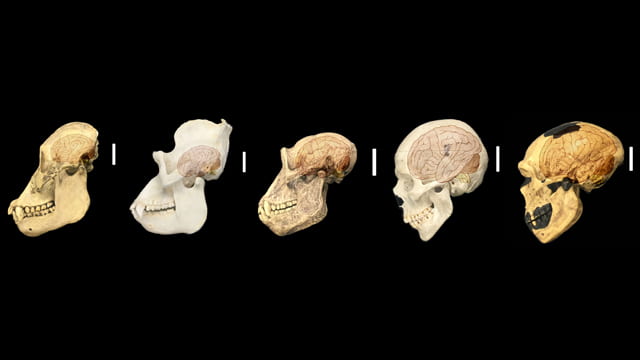News

El gen que esculpió nuestro cerebro
By Mar De Miguel, El Mundo
Un error genético cambió la forma en que se desarrollaron nuestras neuronas.
La evolución es un proceso que es fácil apreciar a gran escala, cuando prestamos atención a las distintas especies que han ido apareciendo, transformándose o desapareciendo a lo largo de la historia biológica de nuestro planeta.

Scientists hunt down genes behind humankind’s big brain
By Will Dunham, Reuters
Scientists have pinpointed three genes that may have played a pivotal role in an important milestone in human evolution: the striking increase in brain size that facilitated cognitive advances that helped define what it means to be human.

A gene for our big brains was rescued from the DNA garbage bin
June 2, 2018 CBC Radio Researchers in the U.S. and Europe have identified a unique human gene that seems to be an important factor in our oversized human brains, which are three times the size of our closest relatives, the chimpanzees. The teams found that the gene...

Exploring the unique genes behind our large brains
By Catharine Paddock PhD, Fact checked by Tim Newman, Medical News Today
A group of genes that is found only in humans and arose in our ancestors 3–4 million years ago may have driven the evolution of our bigger brains.

Human-Specific Genes Implicated in Brain Size
By Abby Olena, The Scientist
Three members of a gene family called NOTCH2NL may have been involved in the evolution of humans’ big cortex.In the last few million years, the brains of humans and human ancestors have quickly evolved to be much bigger and more complex than their primate relatives.

The gene that led to the human intelligence boom has been found
By Alice Klein, New Scientist
How did humans get so smart? A random reshuffle in our ancestor’s genome more than 3 million years ago let our brains grow three times as large.
New Genetic Clues to the Mystery of Your Giant Brain
Compared to gorillas and orangutans, our brains are 3X as big. Brain size is likely a big part of what makes us human. UC Santa Cruz and UCSF scientists recently made an important discovery shedding light on how we got big brains.
